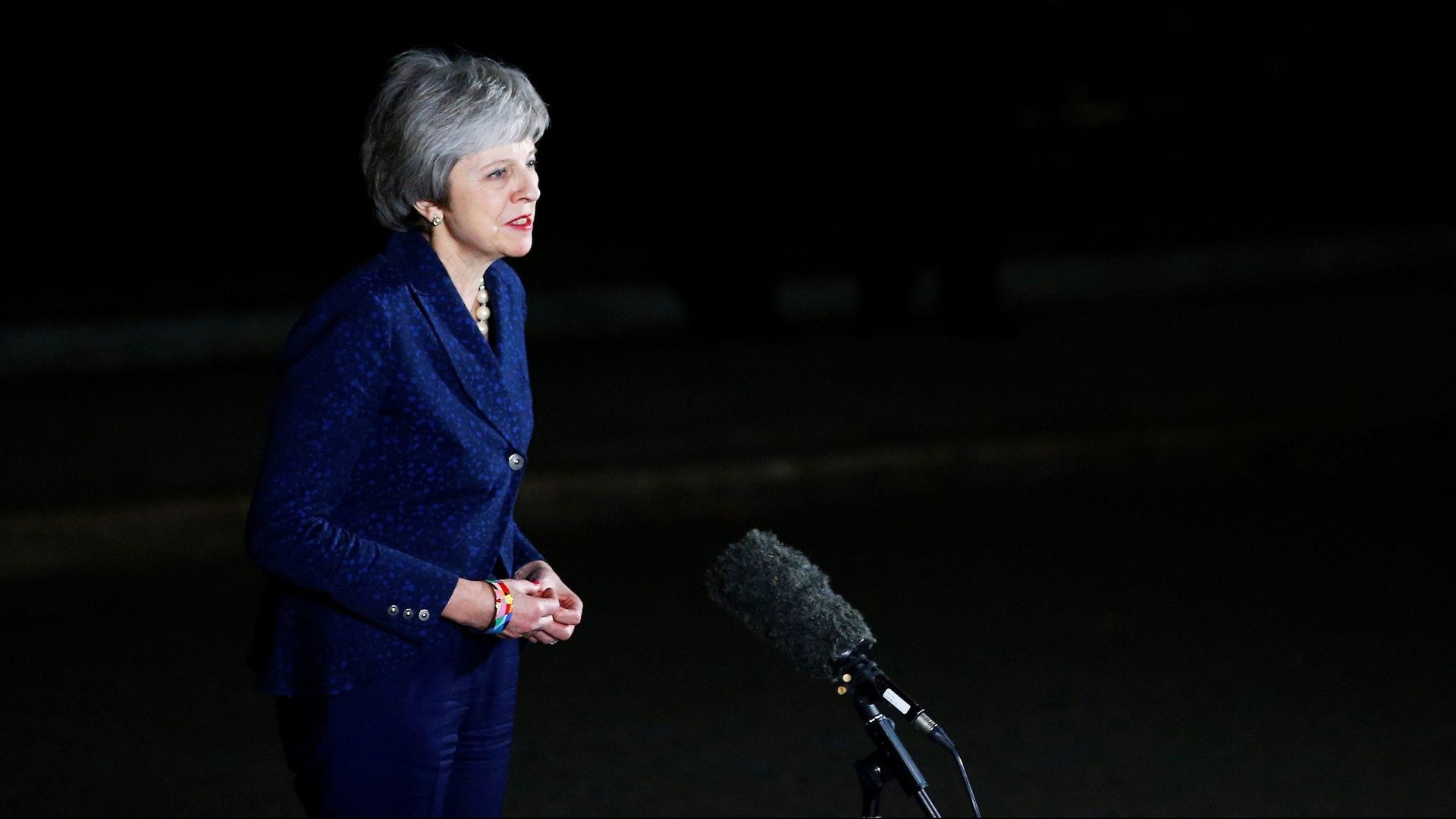The UK parliament just rejected Theresa May’s Brexit deal in historic fashion
Parliament tonight issued a stinging rejection of prime minister Theresa May’s proposed agreement to leave the EU by a historic margin of 230 votes. The lopsided vote is the culmination of two years of intense negotiations since the UK first voted to leave the bloc.


Parliament tonight issued a stinging rejection of prime minister Theresa May’s proposed agreement to leave the EU by a historic margin of 230 votes. The lopsided vote is the culmination of two years of intense negotiations since the UK first voted to leave the bloc.
Speaking afterward, May said that she intended to honor the will of the British public in leaving the EU. “Tonight’s vote tells us nothing about what [parliament] does support,” she said. “Nothing about how—or even if—it intends to honor the decision the British people took in a referendum parliament decided to hold.”
The Conservative leader intends to consult with Britain’s other political parties and the EU on next steps, she said. Jeremy Corbyn, the leader of the opposition, has put forward a no-confidence motion in the government, which will be debated and voted upon tomorrow. If May loses, she will have to resign if a viable alternative government emerges.
May had delayed a December vote on her proposed exit plan to buy more time to try to drum up support. The wait did not prove long enough.
The vote adds to mounting uncertainty around Brexit, still planned for March 29. Deep political divisions, multiple cabinet resignations, and an economic slowdown have colored the lead up to the UK’s withdrawal.
Three amendments originally intended to be brought to the House of Commons floor were pulled; a fourth, put forward by Tory politician John Baron, would have given the UK a unilateral right to terminate the Irish backstop. This was voted down by a majority of 576 votes.
What happens next is still up in the air, with several possible scenarios in play, many of which would require a delay of the March 29 deadline. Assuming May survives tomorrow’s vote, which appears likely, she’s still bound by a motion requiring her to present a “Plan B” within three days. She could choose to try to renegotiate the withdrawal agreement, but the EU has long maintained it would only offer further clarifications, not substantive changes. She could also step down, triggering a Conservative party leadership contest.
May could also call for a general election to break the Brexit impasse—a strategy that backfired for her in 2017. If voters handed her a victory, that would mean some form of mandate for her version of the withdrawal agreement. (She would need the support of two-thirds of parliament for an early election to be approved in the first place.)
Bewildered by all these scenarios? It’s hard not to be confused after the two-and-half years of political twists and turns since 2016, when UK voters narrowly supported leaving the EU.
There are now three main possible Brexit outcomes: The UK could be heading toward a general election, a second referendum, or a cliff-edge no-deal Brexit—the default option, unless legislators take action.
The British economy and the pound are likely to take a hit from tonight’s news, barring the suggestion of a delay or second referendum. Until then, don’t rule out once unlikely turns of events, like a surge in demand for gold in Britain, as uneasy investors increasingly shy away from the pound.
This story was updated to include details on the no-confidence vote and to correct the number of MPs who voted against John Baron’s proposed amendment.